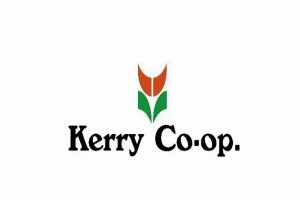Though she can’t disclose exactly what the ingredient is, it’s found in a nutritional oil soon to be available in NZ. Thum discovered it when researching ways to improve infant formula.
“It was funny because it was not in an area I would be looking at. I was reading papers when I found it and we have some companies in New Zealand that could produce that for us and I think in New Zealand we can build an industry around that,” Thum says.
At present, during manufacture of formula, milk fat, which babies are unable to digest properly, is removed and replaced with a blend of vegetable oil which more closely matches the profile of fatty acids in human milk. But that can cause constipation in babies.
“The poo gets really hard and causes discomfort in the baby and they lose energy and calcium,” she says.
Formula makers add prebiotics to help with constipation but the scientist isn’t convinced that’s the best solution.
“Instead of solving the problem they add something else to solve the problem, so it was like, ‘Okay, can we have a different blend or a different source of fat to add to the formula to solve that?’,” she says.
“I started doing some research and I found an oil that is surprisingly similar to the fat in breast milk – it’s from a natural source that I can’t disclose – that potentially solves this problem.”
With funding over three years recently announced from the Government’s 2021 Endeavour Fund, Thum and fellow AgResearch scientist Simon Loveday, along with collaborators from Massey and Monash universities, are aiming to enhance the “humanness” of infant formula produced from NZ ingredients.
Thum also wants to add an element found in milk fat back into the formula. Phospholipids are removed along with other fats during manufacture, but they have an important role in the development of babies’ brains as well as immunity.
“What we want to do is use this special oil and encapsulate that with the phospholipids that the dairy industry produces to create a formula much closer to what we find in human milk, with the right fat profile for the baby, as well as a source of phospholipids to better develop the brain,” she says.
Over the next three years the next-generation formula ingredient will be tested in the laboratory using equipment that simulates the conditions inside a baby’s digestive system.
“This will tell us how well the new combination is digested, compared to conventional infant formula. We aim to show improved fat and calcium absorption, in addition to the positive effect of the phospholipids for brain development,” she says.
With the global markets for infant formula and baby foods expected to continue their strong growth, new products that provide a health advantage are in high demand.
Further down the track she can see the oil being used to develop product for the elderly as their digestive systems slow down and produce fewer enzymes to aid digestion.
“It’s very similar to what we find in babies so we could tailor this special oil to give the right lipid profile for the elderly too,” she says.

















